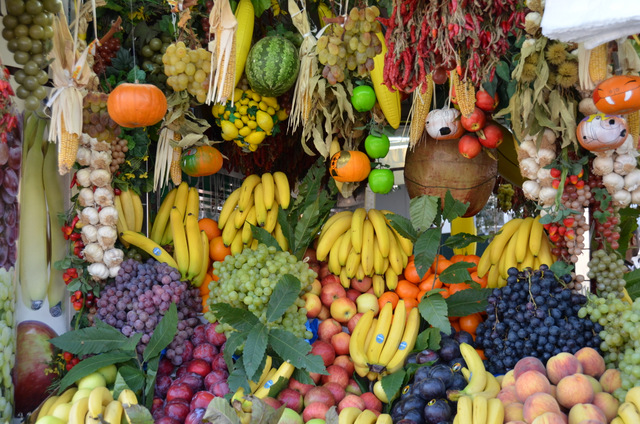Why should fresh fruit be preferred over processed

Latest research from Action on Sugar has revealed that processed fruit snacks favoured by parents with young children and people on the go contain more sugar than Haribo sweets.
The health group found that many of the lunchbox favourites it surveyed, including Fruit Bowl Fruit Flakes Raspberry Rush, had up to and over 4g of sugar per serving.
Other products investigated were custard coated raisins and yoghurt coated strawberries which by their very nature are undoubtedly going to rack up more calories and teaspoons of sugar per 100g.
Aside from the high sugar content, a cause for concern is why these processed products have gained such popularity.
Consumers can only be fooling themselves by buying into the idea that they are being healthy by eating fruit that has gone through a processing stage.
A fruit-based product boasting that it contains 75% fruit, which happens to be made from concentrated fruit juice, can simply never compare to fresh fruit nutrition-wise. So why not eat fresh fruit?
Considering it from a manufacturer’s point of view, companies can very easily reap the financial rewards of fooling consumers into thinking they care about the nation’s health.
Loading products with sugar makes them more addictive and consumers believe they are both treating themselves and eating healthy. But choosing the fresh variety allows consumers to not only determine the freshness, quality and variety of their chosen fruit but also often it works out cheaper to buy fruit fresh rather than lunchbox snacks at low nutritional value. At Tesco, Fruit Factory Sports Mix-Up 90g costs £1.85, while 400g of Tesco Everyday Value Strawberries 400g is priced £1.75.
Packaging also often appears attractive but misleads the consumers to buy fruit-based products assuming they are making an informed healthy choice.
Regardless of custard or yoghurt coatings or flakes made from fruit juices, you can’t deny the health benefits of eating a fresh apple, or a handful of fresh raspberries.
While fresh fruit certainly contains sugar in the form of fructose, sucrose and glucose, it is natural sugar and nothing like table sugar, and offers great benefits to the entire digestive and circularity system. Besides natural sugar, fresh fruit also provides water, vitamins, minerals, fiber and phytonutrients.
Processed fruit products seldom contain the natural sugars or nutritional quality of fresh fruit due to the processing methods involved. Many of the fruit products investigated were made from fruit syrups, concentrates and pulps which have lost their health benefits through production.
Consumers choosing these food products overloaded with sugar are undoubtedly trying to make the right choices but are being misled by brightly illustrated packing and large fonts that declare “real fruit and no artificial flavours”.
A key consideration must be moving these products, in their brightly, fandangled packaging, to the confectionary aisles so shoppers can associate them with sweets and consequently make better informed decisions about what they are about to buy.
Clarissa Waldron
Photo: Aastha Gill

























Facebook
Twitter
Instagram
YouTube
RSS